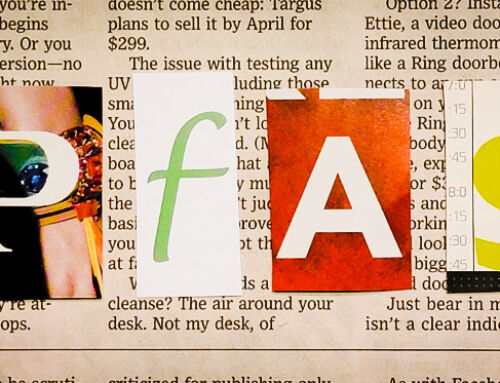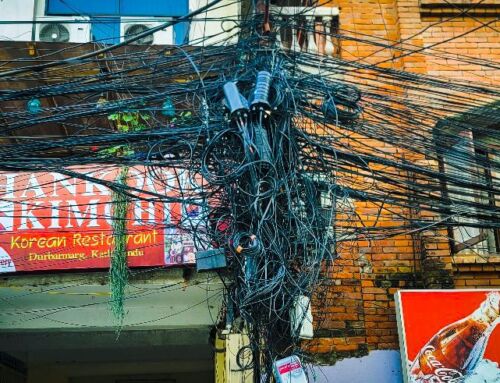View by Topic
Recent Articles
-
New Environmental Laws from the 2024 Maryland Legislative SessionSaturday, April 27th, 2024
-
EPA Designates PFOA and PFOS as Hazardous Substances under Superfund LawSaturday, April 20th, 2024
-
Federal Government Finalizes New Efficiency Standards for LightbulbsSaturday, April 13th, 2024
-
2024 IECC is Final After Addressing Preemption IssuesSaturday, April 6th, 2024
-
Settlement Portends Broad Failure in Attempts to Ban Natural GasSaturday, March 30th, 2024
View by Month/Year
“Green Building Law Update” Headlines
Recent Articles & News from
Stuart Kaplow’s blog
at GreenBuildingLawUpdate.com
- EPA Takes Action: PFOA and PFOS Now Hazardous Substances Under Superfund Law April 21, 2024
- Shedding Light on the Future: The Evolution of Lightbulbs in the Wake of New Energy Efficiency Standards April 14, 2024
- 2024 International Energy Conservation Code is Final After Addressing Preemption April 7, 2024
- Settlement Portends Broad Failure in Attempts to Ban Natural Gas March 31, 2024
Subscribe to the Green Building Law Update!
Stuart Kaplow brings his expertise and extensive experience to the table with his unique digital publication, "Green Building Law Update". Subscribers receive regular updates to keep them informed about important issues surrounding Environmental Law, Green Building & Real Estate Law, as well as the emerging demand for Environmental Social Governance (ESG).
Get fresh content through the lense of Stuart Kaplow's cutting-edge expertise, innovative commentary and insider perspective. Don't miss another issue! Subscribe below.

FTC Regulates What You can Say about Your Solar Panels
A business that generates renewable energy, say, with solar panels, but sells the Renewable Energy Certificates (RECs) for that renewable energy may not then claim it “uses” renewable energy. The Federal Trade Commissions has prescribed that such would be deceptive.
That guidance from the FTC is not new, but as both onsite and offsite renewable energy has become all but a national holy grail, increasingly businesses are communicating to others about their green power, including as part of ESG disclosures.
Today there is a significant increased emphasis on renewable energy in company ESG disclosures about reducing the environmental and economic harms associated with fossil fuel energy and reduce greenhouse gas emissions by increasing the supply of renewable energy projects and foster a just transition to a green economy.
Businesses have choices when determining to use renewable energy. By way of example, a solar system can simply be purchased by a business and installed onsite or the solar system can be financed using a solar loan, lease, or power purchase agreement; or in the alternative green electricity generated by offsite solar panels can be purchased from an electric utility.
A Renewable Energy Certificate (REC) is a tradeable, market-based instrument that represents the legal property rights to the “renewable-ness” or all of the non-power attributes of renewable electricity generation. A REC can be sold separately from the actual electricity (kilowatt-hour, or kWh).
The REC owner has exclusive rights to make claims about “using” or “being powered with” the renewable electricity associated with that REC irrespective of who owns the solar panels. As the owner of the RECs associated with a renewable energy system’s electricity output, that owner can sell these RECs to another party, including transferring the tax incentives arising from that system. In doing so, the owner forfeits the ability to make any claims about “using” renewable energy, but generates a new revenue stream.
This guidance from the FTC may seem counterintuitive, but it is consistent with that prescript and the longstanding position of the federal government that only the party owning the renewableness may make a claim to it.
The FTC issued revised “Green Guides”, 16 CFR Part 260, in 2012 that are intended to help ensure that claims made by businesses about the environmental attributes are truthful and non-deceptive under Section 5 of the FTC Act, 15 U.S.C. 45.1. The Guides are administrative interpretations of the law. Therefore, they do not have the force and effect of law and are not independently enforceable. The FTC, however, can and has taken action under the Act if a business makes an environmental claim inconsistent with the Guides.
Among the relevant language in the Green Guides is, §260.15 Renewable energy claims,
(d) If a marketer generates renewable electricity but sells renewable energy certificates for all of that electricity, it would be deceptive for the marketer to represent, directly or by implication, that it uses renewable energy.”
That express language is clear. But if there was any doubt as to what is intended that uncertainty is assuaged by the following explanatory example provided in the Green Guides,
Example: A toy manufacturer places solar panels on the roof of its plant to generate power and advertises that its plant is “100% solar-powered.” The manufacturer, however, sells renewable energy certificates based on the renewable attributes of all the power it generates. Even if the manufacturer uses the electricity generated by the solar panels, it has, by selling renewable energy certificates, transferred the right to characterize that electricity as renewable. The manufacturer’s claim is therefore deceptive. It also would be deceptive for this manufacturer to advertise that it “hosts” a renewable power facility because reasonable consumers likely interpret this claim to mean that the manufacturer uses renewable energy. It would not be deceptive, however, for the manufacturer to advertise, “We generate renewable energy, but sell all of it to others.”
The environmental industrial complex regularly skirts this legal prescription. In describing the LEED renewable energy credit, a U.S. Green Building Council associated vendor claims, “the benefits of renewable energy are well understood by the general public, and so pursuing this credit can help you advertise your commitment to environmental responsibility.” That statement is problematic and any related advertisement requires caution to not run afoul of the FTC. But it is also clear that many businesses, in error, make a similar claim about “their” renewable energy despite having sold the RECs to others.
This is not simply an instance of playing dumb being “out” while faking smart is “in” but is about the FTC and state attorneys general policing environmental claims sua sponte. Moreover, there have been claims by tenants against landlords arising from green power, claims by new house purchasers against homebuilders, and the like, all that would not pass FTC muster.
This is all relevant at a time when federal renewable energy tax incentives are currently proposed to be expanded as part of the Biden Administration response to climate change concerns.
There is concern that the Green Guides not only go too far but have not kept pace with the marketplace and need to be corrected and updated, when the FTC does its systematic 10 year regulatory review of the Green Guides later in 2022 (.. one of 4 FTC regulations proposed for review this year), where today some of the guidance results in the federal government inhibiting truthful statements in the misguided effort of the FTC Man Controlling Trade wielding prior restraint in the name of truth in advertising.
As renewable energy, including onsite solar, become more common so too will questions about what can be claimed about that green power and those solar panels.
ESG has become such a large component of my law practice that I am now collaborating with a fabulous group of attorneys in ESG Legal Solutions, LLC, a new non-law consulting firm “powering sustainability for tomorrow’s business.” Nancy Hudes and I are now publishing a blog www.ESGLegalSolutions.com (.. yes, this website will continue). This article originally appeared in that blog. If we can assist you or someone you work with in ESG strategy and solutions, from policy to project implementation, do not hesitate to reach out to me.









